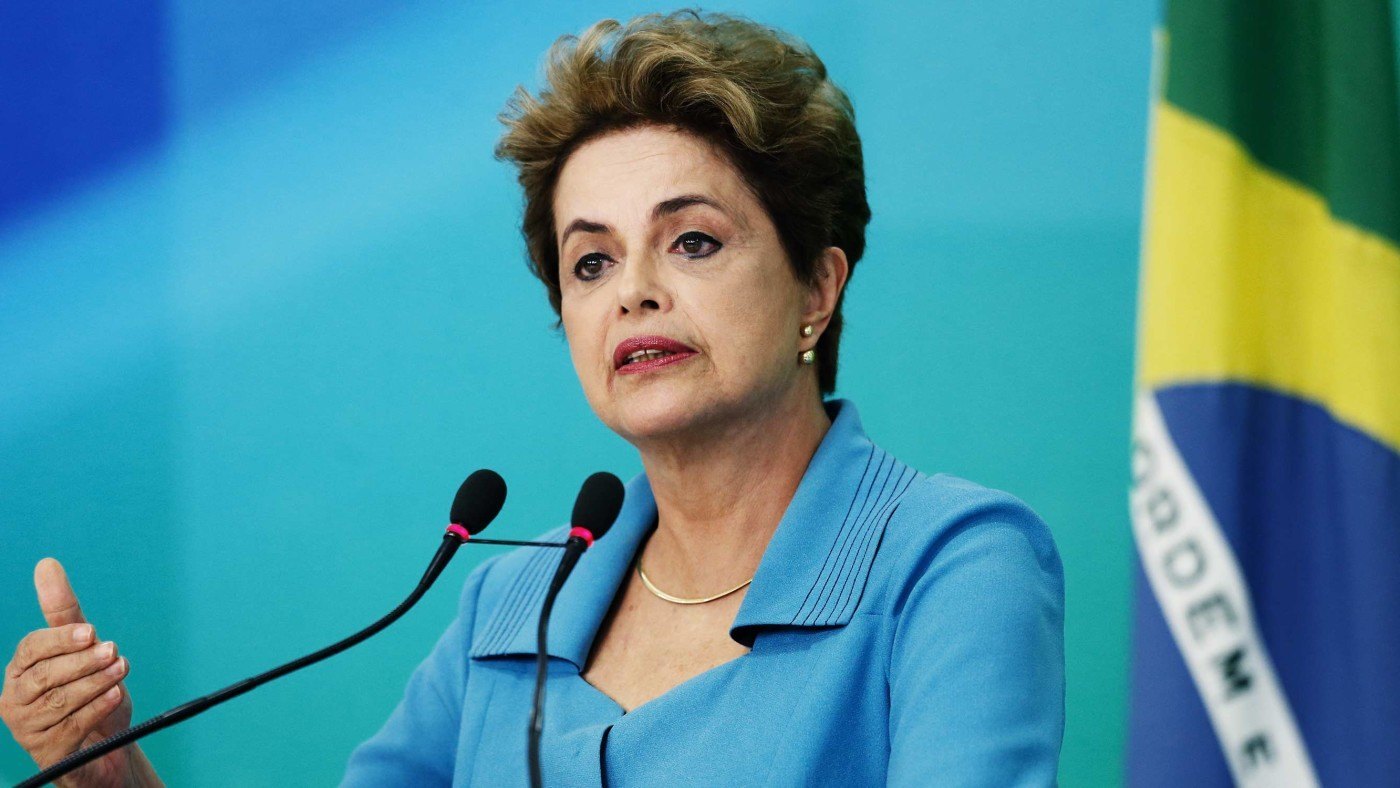It’s hard not to feel sorry for Dilma Rousseff, Brazil’s struggling president who on Sunday was defeated in an impeachment vote in Congress.
It’s not that Rousseff is innocent, or even a good president. She is neither of those things. During her administration, she has pursued protectionist big-state policies which have decimated Brazil’s competitiveness, squandered its natural resources, and plunged the country into debt. At a crucial moment last year, she reneged on promises to get the deficit under control, and chose her own popularity over her country’s economic prosperity. And her inability over the weekend to muster even the one third of congressional deputies needed to block the impeachment demonstrates her ineffectiveness on the most basic political level.
But the circumstances surrounding Sunday’s vote, which led to thousands celebrating in the streets across Brazil, make it clear that however misguided and selfish Dilma Rousseff may be, she is also a victim.
Adversaries have pointed out that this is a democracy at work, beginning when a petition filed by two lawyers was accepted the speaker of the lower chamber of Congress, Eduardo Cunha. So far both the Supreme Court and a congressional committee have ruled that the process should go ahead. On Sunday, 367 of Brazil’s 513 deputies voted to impeach her, making it difficult for Rousseff to claim, as she has from the beginning, that this is “non-traditional coup d’etat”.
The trouble is, in a way she is right.
Rousseff is accused of using bank loans to mask Brazil’s fiscal difficulties when running for her second term in 2014. She is almost certainly guilty, but this is a relatively minor offence when one considers the deep-seated corruption that runs throughout the Brazilian government.
In a fascinating report by Jonathan Watts of The Guardian, the level of hypocrisy in Sunday’s vote becomes staggeringly clear:
“Deputies were called one by one to the microphone by the instigator of the impeachment process, Cunha – an evangelical conservative who is himself accused of perjury and corruption – and one by one they condemned the president.
Yes, voted Paulo Maluf, who is on Interpol’s red list for conspiracy. Yes, voted Nilton Capixiba, who is accused of money laundering. “For the love of God, yes!” declared Silas Camara, who is under investigation for forging documents and misappropriating public funds.
And yes, voted the vast majority of the more than 150 deputies who are implicated in crimes but protected by their status as parliamentarians.”
This becomes even more complex when one considers what will happen if, as is expected, the Senate also votes to impeach her. Once the Senate agrees to consider the impeachment motion, Rousseff will step down for 180 days and the presidency will pass to Vice President Michel Temer, leader of the centre-right PMDP party and, until last month, Rousseff’s coalition partner. As I have written previously, Temer is hardly squeaky clean. In fact, a Supreme Court judge has ruled that he too must face impeachment proceedings, for the same charges as Rousseff. Third in line is Cunha himself, who is even more mired in corruption and bribery scandals than they are, and is one of the most unpopular politicians in Brazil.
Some will argue that any anti-corruption drive must start somewhere. Indeed, it is hard to excuse one’s own wrongdoings with the petulant cry of “but everyone else is doing it”. Rousseff is not blameless, and her role in the Petrobras scandal is yet to be fully examined. There may be even more skeletons in her closet than the manipulation of some economic figures. But anyone who believes Temer and Cunha are acting in the best interests of Brazilians rather than attempting to consolidate their own power is deluding themselves.
Rousseff must have known this was coming – she spoke calmly at the press conference following the vote, and for all her claims about being “outraged” and promises to continue fighting, she can see the situation is almost out of her hands. Even her supporters are more subdued than their anti-government counterparts.
Watching her, I was reminded of the locals I met who told me that, despite her complete mismanagement of the country, they pitied her. Rousseff was never intended to be the successor to the wildly popular President Luiz Inácio Lula da Silva – she joined his government as Minister of Energy, and only became his chosen number two when a corruption scandal claimed his Chief of Staff. When she first ran for president in 2010, she had never been elected to a political post before. Although she has spent half her life in politics, her lack of experience when it comes to connecting with voters has become one of many factors in her impending downfall.
So yes, Dilma Rousseff is deeply unpopular – she had it coming, and she probably deserves it. But Brazil is heading for crisis, and handing the reins to the two corrupt megalomaniacs who orchestrated her destruction is no cause for celebration.


